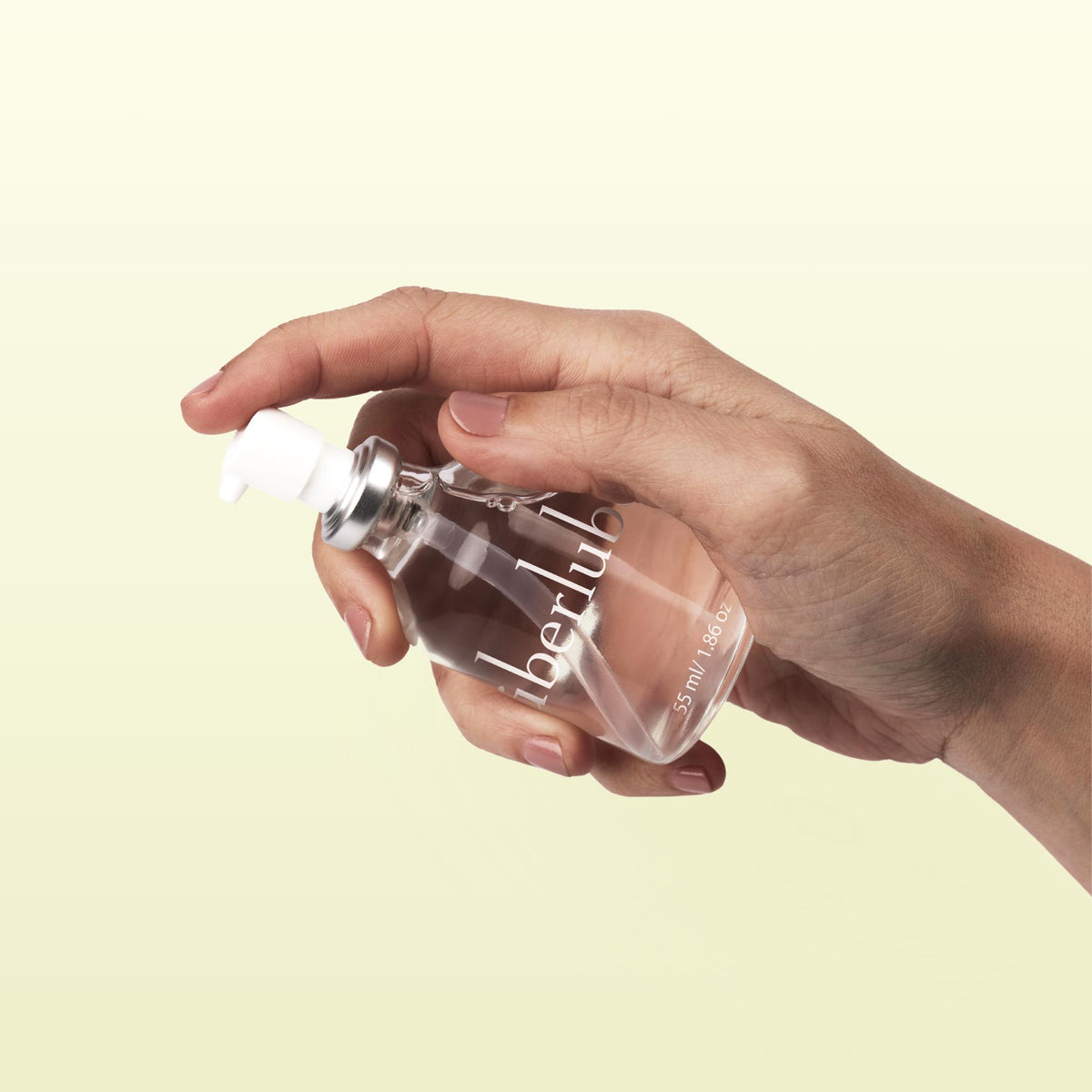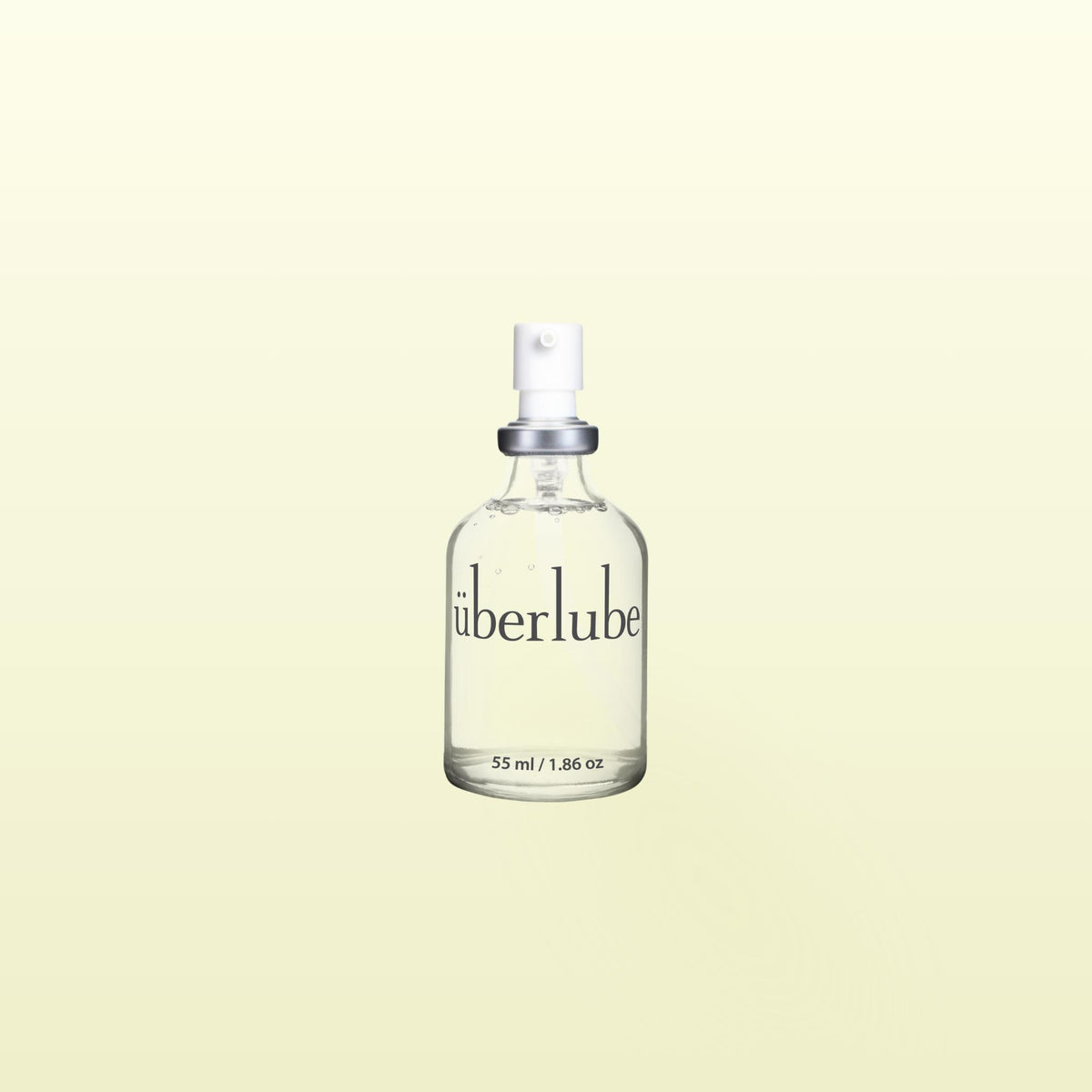यौन संचारित संक्रमण किसी भी तरह की यौन गतिविधि में शामिल होने का एक आम हिस्सा है। हम में से कई लोग सीखते हैं कि हम योनि और गुदा मैथुन के दौरान कंडोम का उपयोग करके अपने जोखिम को कम कर सकते हैं और खुद को सुरक्षित रख सकते हैं, लेकिन मौखिक सेक्स के दौरान क्या? हमने अपने दोस्तों के साथ मिलकर काम किया पीला आपको तथ्य प्राप्त करने के लिए!
क्या मौखिक सेक्स के दौरान यौन संचारित रोग फैल सकते हैं?
एक सर्वेक्षण में यह बात सामने आई है। गुट्टमाचर संस्थान599 उत्तरदाताओं में से 26% को यह नहीं पता था कि यौन संचारित रोग मौखिक सेक्स के माध्यम से फैल सकते हैं। वास्तव में, ऐसे कई कारण हैं जो यौन संचारित रोगों के जोखिम को कम करते हैं। मुख मैथुन के दौरान फैलने वाले संक्रमणों की संख्या, और वे जननांगों या गुदा और मुंह के बीच आगे-पीछे हो सकते हैं। मौखिक एसटीआई वाला व्यक्ति अक्सर इसे किसी और के जननांगों में पहुंचा सकता है, और इसके विपरीत। एक ही समय में मौखिक एसटीआई और जननांग एसटीआई होना भी संभव है।
मुंह, जननांग और मलाशय सभी श्लेष्म झिल्ली से ढके होते हैं - नरम, नम ऊतक जो अक्सर आपके शरीर के अन्य हिस्सों की त्वचा की तुलना में संक्रमण के लिए अधिक संवेदनशील होते हैं। एंड्रिया स्लीथ, महिला स्वास्थ्य नर्स प्रैक्टिशनर, बताती हैं, "योनि म्यूकोसा की पारगम्यता के कारण, महिलाएं और योनि वाले व्यक्ति लिंग संचरण की तुलना में एसटीआई के लिए अधिक संवेदनशील होते हैं, जहां संक्रामक एजेंटों को प्रवेश के लिए कम बाधाओं का सामना करना पड़ता है।"

यही एक कारण है कि महिलाएं अक्सर यौन संचारित रोगों के प्रति अधिक संवेदनशील पुरुषों की तुलना में योनि में श्लेष्म झिल्ली का खुला सतही क्षेत्र अधिक होता है, जो वायरस और बैक्टीरिया को संचारित होने का अधिक अवसर प्रदान करता है।
मुख मैथुन से कौन से यौनसंचारित रोग फैल सकते हैं?
निम्नलिखित संक्रमण मुख मैथुन के माध्यम से फैल सकते हैं:
- क्लैमाइडिया
- गोनोरिया
- यूरिया प्लाज्मा
- माइकोप्लाज़्मा
- सिफलिस
- हर्पीज
- एचपीवी
- एचआईवी (इसका जोखिम कम माना जाता है, तथा यह योनि या गुदा मैथुन से होने वाले जोखिम से भी कम है)
- ट्राइकोमोनिएसिस (मौखिक सेक्स के माध्यम से संचरण के कुछ मामले सामने आए हैं)
यह याद रखना महत्वपूर्ण है कि यद्यपि मुख मैथुन से होने वाली यौन संचारित बीमारियां (एसटीडी) आम हैं, लेकिन उनका जोखिम स्तर अलग-अलग होता है और मुख मैथुन के दौरान आप स्वयं को और अपने साथी को सुरक्षित रखने के लिए कुछ कदम उठा सकते हैं!
हर्पीज के बारे में एक नोट

हालाँकि बहुत से लोग HSV-1 को केवल मौखिक संक्रमण (कोल्ड सोर) और HSV-2 को केवल जननांग संक्रमण मानते हैं, लेकिन मौखिक HSV-2 संक्रमण या जननांग HSV-1 संक्रमण होना पूरी तरह से संभव है। वास्तव में, लगभग 85% नए जननांग दाद संक्रमण मौखिक सेक्स से होते हैंइसका एक कारण यह भी हो सकता है कि डॉक्टरों और नए माता-पिता के बीच नई काउंसलिंग प्रथाओं के कारण कम बच्चे HSV-1 के संपर्क में आते हैं - अब यह अधिक संभावना है कि किसी व्यक्ति का HSV-1 से पहला सामना मौखिक सेक्स के दौरान होगा, न कि बचपन में किसी रिश्तेदार को चूमने से, उदाहरण के लिए। HSV-1 और HSV-2 दोनों ही बेहद आम हैं और इनका इलाज किया जा सकता है। प्रिस्क्रिप्शन एंटीवायरल.
क्या मुख मैथुन योनि या गुदा मैथुन से अधिक सुरक्षित है?
दो मुख्य कारणों से मौखिक सेक्स की सापेक्ष सुरक्षा की तुलना अन्य प्रकार के सेक्स से करना कठिन है:
- अधिकांश लोग जो मुख मैथुन करते हैं, वे योनि या गुदा मैथुन भी करते हैं।
- बहुत कम अध्ययनों में लिंग की तुलना में योनि या गुदा पर मुख मैथुन करने से एचआईवी के अलावा अन्य यौन संक्रमित रोग होने के जोखिम पर विचार किया गया है।
दूसरों के साथ यौन क्रियाकलाप करते समय हमेशा एक निश्चित स्तर का एसटीआई जोखिम होता है। अपने व्यक्तिगत यौन जोखिम को प्रबंधित करने का सबसे अच्छा तरीका है कि आप खुद को विभिन्न एसटीआई के बारे में शिक्षित करें और जोखिम के स्तर के आधार पर तय करें कि आप किन गतिविधियों में सहज हैं। कुछ गतिविधियों से आपको जो आनंद मिलता है, उसे स्वास्थ्य जोखिमों के साथ आपके सहज स्तर के साथ संतुलित किया जाना चाहिए।
क्या ओरल सेक्स से गले का कैंसर हो सकता है?
हममें से अधिकांश लोग यह जानते हैं एचपीवीजननांग मस्से पैदा करने वाला वायरस कभी-कभी गर्भाशय ग्रीवा के कैंसर का कारण बन सकता है। गर्भाशय ग्रीवा के कैंसर से खुद को बचाने का सबसे अच्छा तरीका नियमित रूप से जांच करवाना है। पैप परीक्षण ताकि आपका डॉक्टर कैंसर से पहले या कैंसरग्रस्त कोशिकाओं के विकास को जल्दी पकड़ सके और सर्वोत्तम परिणाम के लिए उचित उपचार शुरू कर सके। आपके मुंह और गले में HPV का संक्रमण संभव है—लगभग 10% पुरुषों और 4% महिलाओं में ओरल एच.पी.वी. पाया जाता है, जो कैंसर (जिसे ऑरोफरीन्जियल कैंसर कहा जाता है) में विकसित हो सकता है। यह अनुमान लगाया गया है कि संयुक्त राज्य अमेरिका में 70% ऑरोफरीन्जियल कैंसर का कारण HPV है।
एचपीवी के संचरण को रोकने का सबसे प्रभावी तरीका एचपीवी वैक्सीन लगवाना है (जो वायरस के कुछ प्रकारों के जोखिम को कम करता है) और कंडोम, डेंटल डैम या अन्य सुरक्षात्मक उपकरणों जैसे अवरोधक तरीकों का उपयोग करना है। लोरल्स! आइये एसटीआई की रोकथाम के लिए हमारे शीर्ष मौखिक सुझावों पर नजर डालें।
ओरल सेक्स के दौरान यौन संचारित संक्रमण (STI) के संक्रमण को रोकने के लिए आप क्या कर सकते हैं?

अपने यौन स्वास्थ्य की रक्षा करने का पहला कदम हमेशा विश्वसनीय स्रोतों (जैसे कि विस्प ब्लॉग!) को पढ़ना और वहाँ मौजूद एसटीआई के बारे में शिक्षित होना है! याद रखें, एसटीआई डेटिंग, प्यार, अंतरंगता और रिश्तों का एक हिस्सा है। आपके जोखिम को कम करने के तरीके हैं, लेकिन अगर आपको एसटीआई हो जाता है, तो यह महत्वपूर्ण है कि आप खुद को दोष न दें। सभी एसटीआई का प्रबंधन किया जा सकता है, और यह महत्वपूर्ण है कि आप अपने स्वास्थ्य की रक्षा के लिए सही देखभाल की तलाश करें। यहाँ कुछ तरीके दिए गए हैं जिनसे आप ओरल सेक्स के दौरान अपने एसटीआई जोखिम को कम करना शुरू कर सकते हैं!
एसटीआई स्क्रीनिंग
एसटीआई के लिए नियमित रूप से जांच करवाना महत्वपूर्ण है, भले ही आपको कोई लक्षण न हों। एसटीआई का सबसे आम लक्षण है कोई लक्षण न होना! पार्टनर के बीच या यौन रूप से सक्रिय होने के दौरान हर 3-6 महीने में जांच करवाना, अपने और अपने पार्टनर के स्वास्थ्य की रक्षा करने का एक अच्छा तरीका हो सकता है।
Lorals
डेंटल डैम पतली लेटेक्स की चादरें होती हैं जिन्हें मौखिक सेक्स के दौरान योनि या गुदा के ऊपर लगाया जा सकता है ताकि यौन संचारित रोगों के संचरण को रोका जा सके। हालांकि वे बहुत प्रभावी हो सकते हैं, लेकिन उन्हें ढूंढना मुश्किल हो सकता है और उन्हें जगह पर रखना पड़ता है - जब आप इसे लगाने की कोशिश कर रहे हों तो हमेशा सबसे सेक्सी नहीं होते! लोरल्स FDA-स्वीकृत, अति-पतले और फैशनेबल लेटेक्स अंडरवियर हैं जो अपनी जगह पर टिके रहते हैं और शारीरिक तरल पदार्थों और एसटीआई/एसटीडी से सुरक्षा प्रदान करते हैं। इन्हें पहनने योग्य सुरक्षा और यौन क्रियाकलापों के दौरान बेहतरीन अनुभूति के लिए डिज़ाइन किया गया है।
कंडोम
ओरल सेक्स करते समय लिंग को कंडोम से ढकना अधिकांश एसटीआई संक्रमण को रोकने का एक अत्यधिक प्रभावी तरीका है। लोरल्स और डेंटल डैम की तरह, कंडोम शारीरिक तरल पदार्थ और त्वचा से त्वचा के संपर्क के खिलाफ एक भौतिक अवरोध प्रदान करते हैं जो एसटीआई संक्रमण का कारण बन सकते हैं। फ्लेवर्ड कंडोम ओरल सेक्स के दौरान उपयोग के लिए डिज़ाइन किए गए हैं और कई अन्य ब्रांड उस विशिष्ट रबर या लेटेक्स स्वाद और गंध के बिना कंडोम का विज्ञापन करते हैं। आपके लिए क्या कारगर है यह जानने के लिए थोड़ा प्रयोग करें!

यदि आप स्वयं को किसी समस्या से निपटते हुए पाते हैं एसटीआई, आप Wisp के साथ घर बैठे आसानी से उपचार प्राप्त कर सकते हैं। फिर, सेक्सी और सुरक्षित अंडरवियर के साथ अपने स्वास्थ्य की रक्षा करना जारी रखें लोरल्स!
कैथलीन मॉरिसन एवं द्वारा लिखित पीला टीम। कैथलीन मॉरिसन विस्प में एक वरिष्ठ ब्रांड लेखक हैं। कैथलीन को कैलिफोर्निया डिपार्टमेंट ऑफ पब्लिक हेल्थ - एसटीडी प्रिवेंशन ब्रांच में एक स्वास्थ्य शिक्षक, गिलियड साइंसेज में एक संपादक और एक स्वास्थ्य सामग्री रणनीतिकार और लेखक के रूप में अनुभव है। all.health. कैथलीन ने विलियम्स कॉलेज से बी.ए. और सैन फ्रांसिस्को स्टेट यूनिवर्सिटी से मास्टर डिग्री प्राप्त की है।
मेलानी क्रिस्टोल, जे.डी. द्वारा समीक्षित एवं संपादित, लोरल्स के संस्थापक और सीईओ। उन्होंने कोलंबिया विश्वविद्यालय के कोलंबिया कॉलेज में समाजशास्त्र का अध्ययन किया, और उन्होंने कोलंबिया लॉ स्कूल से अपना ज्यूरिस डॉक्टरेट प्राप्त किया। लोरल्स बनाने और पेटेंट कराने से पहले, मेलानी एक स्वास्थ्य सेवा और उपभोक्ता उत्पाद वकील थीं, और वह पश्चिमी संयुक्त राज्य अमेरिका के लिए समलैंगिक विवाह अधिकारों को सुरक्षित करने वाली कानूनी टीम का हिस्सा थीं। मेलानी ने नेशनल LGBTQ टास्क फोर्स के साथ एक फील्ड ऑर्गनाइज़र के रूप में कैलिफ़ोर्निया और ओहियो में LGBTQ अधिकारों के लिए भी लड़ाई लड़ी।




























